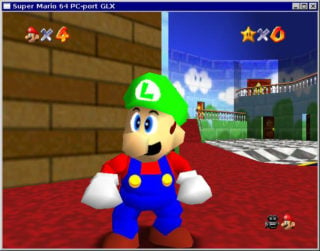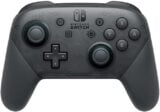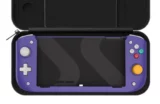Nintendo says it increased security following a prolific leak of game prototypes
The ‘Gigaleak’ saw an unprecedented amount of confidential game data leaked online

Nintendo has suggested it has increased its security, following an unprecedented leak of classic game assets and prototypes.
In 2020 the so-called Nintendo ‘Gigaleak’ saw a significant amount of allegedly stolen data leaked onto the internet, including prototype versions of classic Nintendo games including Yoshi’s Island, Super Mario Kart and N64 games such as The Legend of Zelda: Ocarina of Time, and even unreleased games.
The leaks also reportedly contained internal documentation related to GameCube, Nintendo DS, Nintendo 64 (and its 64DD add-on), Wii and the China-only iQue, showing how the systems work and the development processes behind them.
Although the data was prominently published in 2020, it’s believed to have been stolen years earlier.
Because the leak contained information related to the ‘iQue’, the Chinese brand created to release Nintendo content, it’s been suggested it could be one of the sources of the information, along with BroadOn, a company Nintendo had contracted to develop Wii hardware and software.
Previously, Nintendo has not made any official response to ‘Gigaleak’. However, on Tuesday the incident was referenced in a question asked at the company’s annual shareholder meeting in Kyoto, Japan.
As transcribed by Twitter user NStyles, Nintendo was asked during the meeting for its stance on the iQue brand and the Chinese market, considering that “some people believe that iQue may have been the source of information leaks.”
Responding to the question, Nintendo president Shuntaro Furukawa said: “The PC and mobile games market in China is large, but dedicated games consoles are not so large.
“Together with Tencent, we want to continue to popularise them. We are working with experts on information leaks. We have also introduced information security management.”
UPDATE: Nintendo has published the full response in English:
“We are taking a variety of initiatives to address information security threats and vulnerabilities. For the services we provide, initiatives include cooperating with outside specialists and conducting diagnostics to check for security issues.
“In addition, as part of our internal system for information security, we introduced the information security management system in 2017 and have set up our Information Security Committee. Policies for information management have been established, and we have adopted both physical and technical countermeasures. In addition, we work to raise awareness of information security among our employees through training and other means.”
ORIGINAL STORY CONTINUES: Nintendo is historically aggressive with protecting its intellectual property. In one high profile case related to the leaking of its confidential files, a man was sentenced to three years in prison in 2020 and ordered to pay $259,323 in restitution to Nintendo.

21-year-old Ryan Hernandez was also registered as a sex offender after official discovered child pornography on his possession.
The ‘Gigaleak’ has had significant effects for both preservation and emulation, as fans gained a rare insight into how the historically secretive company made its classic games.
One group of dedicated Nintendo fans managed to restore Super Mario World’s 30-year-old soundtrack using samples uncovered in a data leak.
A community modder also spent nine months repairing an early prototype of SNES classic Super Mario Kart obtained via the leak, which includes features not included in the final game such as a track editor.
















